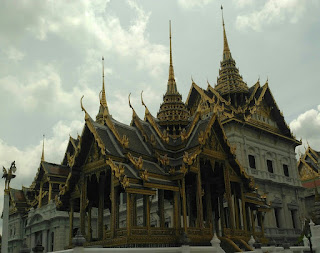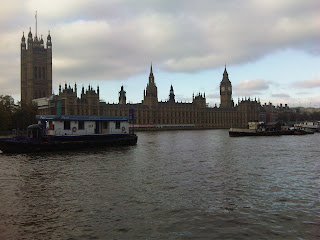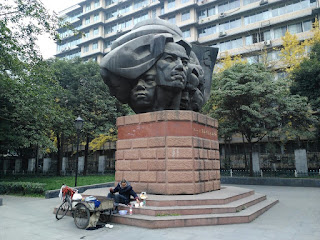What Taiwan has in common with Great Britain
While Great Britain (GB) is trying hard to break away from Europe with
Brexit, Taiwan is struggling to keep away from China (PRC). For both GB and Taiwan, the first beak took place about 10,000 years ago. It was the end of the last ice age. The melting ice caps raised the sea levels making islands of both land masses. The early 1970s was also a crucial time for both entities. The UK joined the European Economic Community (EEC), the precursor to the European Community (EU), in 1973. In 1971 the United Nations (UN) abandoned Taiwan with Resolution 2758. This decision left Taiwan at the mercy of the Mao's China and his successors. While Britain has much to lose form tearing away from Europe, Taiwan has even more at stake with an opposite scenario. If the People's Republic were to take control of Taiwan, it would not only be the end of its self-determination, it would spell the loss of many of its human rights. One of the main problems for Britain is its leader, Theresa May. The danger for Taiwan, on the other hand, is the leader of the PRC,
Xi Jinping.
Taiwan's historic ties to China
Until the fifteenth century, Taiwan contained populations of indigenous chiefdoms. The natives followed primitive pursuits, such as fishing and headhunting. By the time the Dutch arrived in the seventeenth century, there were only a few Chinese outposts. The Dutch lasted less than 40 years as they were ousted by
Koxinga, in 1662. He was a Ming "loyalist" fleeing form the newly founded Qing Dynasty. In 1683 the Qing invaded the island and put it decisively under Chinese control. After the loss of the First Sino-Japanese War in 1895, however, the Chinese formally surrendered Taiwan to Japan. The situation only changed after World War II. The surrender did not formally cede the island to China. Nevertheless, the fact that the USA went out of its way to ferry representatives form there for the formal surrender suggests that that was the consensus.
 |
| Taipei, Taiwan |
The UN betrays the Republic of China
Complications started in 1949 with the civil war in China. The Republic of China (ROC), the legitimate government, was being swept away by the communist forces of
Mao Zedong. The government forces under the leadership of
Chiang Kai-shek were being being ousted from one stronghold to another. The situation was going from bad to worse, so the government of China (ROC) fled to Taiwan, taking many of China's treasures with them. This left Mao in control of most of mainland China and shortly after, the whole of the mainland, including Tibet. So, mainland China became the People's Republic of China (PRC), while Taiwan was all that remained of the Republic of China. Both claimed sovereignty over the other and of course the UN recognised the ROC, which was the legitimate government. Then, almost out of the blue, the UN passes Resolution 2758:

Ouch! Chiang Kai_shek was no sweetie. In fact he was a ruthless tyrant who was responsible for the White Terror that cost the lives of thousands of people. Mao's policies, we must not forget, resulted in the death of millions. Resolution 2758 left Taiwan in Limbo. It is a country that is not a country. It is unrepresented and excluded from international politics to this day. It is a member of the
Unrepresented Nations and Peoples Organisation, which I spoke about on the 16th March.
 |
| A statue of Mao Zedong in Chengdu, China |
Things need not be so bad
Just as the UK has so much to gain from being a part of Europe, Taiwan could be enriched by union with China. It could, but certainly not in Xi's China. Just look at what is happening in Hong Kong, where a commitment by China to respect HK's liberties is being gradually eroded.
Dend Xiaoping, who was China's leader until 1989, had started the momentum for a freer and more open society. Since then it has flourished. Sadly, Xi seems bent on dragging it back from some of its newfound liberties. It is not the system that is letting China down, it is its leader. Xi's stance on Taiwan is also intransigent; and aggressive. He threatens to use force if Taiwan tries to officially distance itself from the PRC and punishes any mention of it as a separate country. Beijing has been bulling or bribing the few nations that still recognise Taiwan to abandon it, with a fair amount of success. Currently only 16 UN countries, plus the Holy See recognise it.
Taiwan has been stepping back from its claim to the sovereignty of mainland China. However, it is in a difficult position. The PRC never had jurisdiction over Taiwan, but if Taiwan formally renounces its claim to the whole of China, things may change quickly. As the continuation of the ROC, Taiwan has a certain foundation in history. Take that away and where does it stand? It would be as good as declaring full independence from China as a new nation. This means that China would have a pretext to invade Taiwan. So, ironically, Taiwan's claim to sovereignty over the whole of China, (the PRC as well as the ROC) is more acceptable to China (PRC) than its agreeing to forego that claim. A ridiculous situation that works to the advantage of China (PRC).
The way forward
The only way forward, then, is for two enlightened leaders to sit together and find a mutually beneficial solution. This, of course cannot happen until the PRC changes its imperialistic attitude and need to dominate. A fairer and more impartial UN could also help by acknowledging the absurdity of the situation and trying to do something about it. This too is unlikely while nations fear to incur the wrath of China. The more time passes, the more the countries will drift apart, but the will of the people of Taiwan is not high up on Beijing's priority list.


















